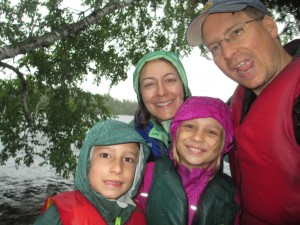
This week's Spotlight is about Matthew Maciejewski, PhD, a health economist and health services researcher. Eight years ago Dr. Maciejewski came from the west coast, Seattle, Washington, to North Carolina. He has a very lengthy list of publications and yet tells us about papers by other authors, landmarks about internal validity of observational studies. Read how he began studying economics and then merged with healthcare research. Here are his answers to our questions.
How long have you been at Duke? How long have you been in the division of General Internal
Medicine?
I have been in the Division of General Internal Medicine at Duke since 2007 after nearly a decade at the Seattle VA Medical Center and the University of Washington. In 2006, I joined HSR&D at the Durham VA and the Duke appointment followed.
What are your responsibilities within the division? What does a typical day for you look like? Could you tell us more about your role as a researcher.
As a health economist, I spend most of my time conducting research and some time mentoring junior faculty and fellows. I split my research time between HSR&D-funded studies and Duke-based studies. In the spring, I have been co-teaching a CRTP course (Comparative Effectiveness Research) with Lesley Curtis.
These days, a typical day involves several meetings to advance currently funded projects or develop new studies. When not in meetings, I am responding to email and drafting manuscripts for ongoing studies. One-two times each week I try to get lunch or coffee with a colleague to get some fresh air
How did you get into this field?
Like most people doing health services research (HSR), I didn’t come to this field directly. I was working at the Federal Reserve Board in Washington DC when the Clinton health care reform effort was pursued in 1992-1993 and starting to think about graduate programs that would build on my undergraduate training in economics. I knew nothing about health care at the time, but HSR seemed quite appealing for three reasons: 1) the health economics aspect of HSR clearly built on my undergraduate training, 2) there appeared to be problems in health care that were modifiable so one could “make a difference” and 3) the Clinton health reform effort made it seem like a wave of major social change was underway that might create interesting career opportunities.
How has your subject area changed (or where you see future changes)?
At the start of my career, I was interested in Medicare policy and health benefit design. Working in the VA led to new research opportunities due to its longstanding electronic health record (EHR) and veterans’ long-term reliance on VA for care. For example, we leveraged weight data in the EHR to construct a large cohort of non-surgical controls (not been typically available in non-VA studies) to examine a range of long-term outcomes of bariatric surgery in veterans. In the past few years, I have also been trying to understand patient and health system factors that explain outcome variation in patients with multiple chronic conditions (MCC). MCC patients incur a disproportionate share of expenditures in every US health system and it is not yet clear what care models are effective at managing their needs and scalable. So, this remains a challenging area of research that will only yield breakthroughs via strong multidisciplinary collaboration.
In terms of the future, the advent of “big data” is creating real opportunities (and real challenges) to determine whether non-randomized interventions being tried by different health systems actually work as planned. We are still in the very early days of trying to figure out how to best use “big data” when trying to make causal claims.

What passions or hobbies do you have outside of the division?
When not working, I like to spend time with my family because my kids still want to hang out with me, nap, cook and go camping. My wife and I enjoy seeing live music when time allows. We have been trying to take 2 week vacations every summer, and we spent this past summer’s vacation in the upper Midwest (photo is from the Boundary Waters Canoe Area in Minnesota).
Have you recently read any books, articles, blog posts or other material that would be of interest to the division?
For anyone interested in internal validity of observational studies, papers by John Ioannidis that are critical of these studies (several in JAMA) are useful to keep one honest. The doubly randomized preference trial by Shadish, Clark and Steiner published in JASA in 2008 is a real inspiration too.